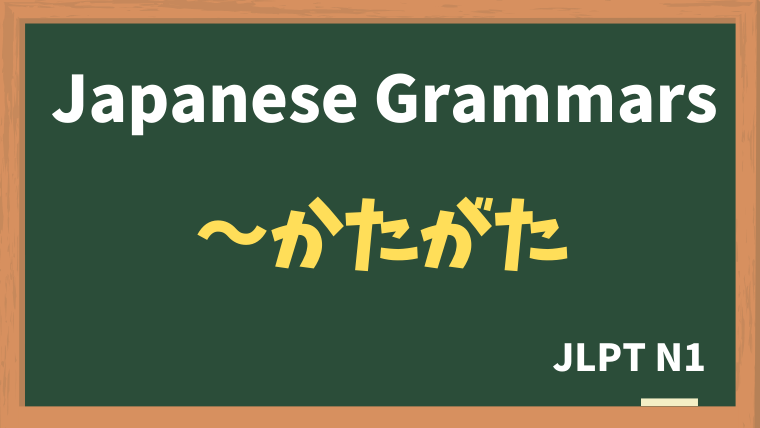
Explanation:〜かたがた
fa-check-circleMeaning
"〜のついでに / 〜するときに、・・・もする"
「何かを行う機会を利用して、他のこともする」と言う時に使います。
To indicate doing something for two or more purposes simultaneously.
It is often used in written language or formal speech and is typically paired with actions that serve dual functions, such as making a courtesy visit while also conducting business.
fa-check-circleForm
N + かたがた
よく使うNoun
→ご挨拶、お礼、お見舞い、ご報告、お詫び
fa-check-circlePoints
- Dual Purpose: "〜かたがた" expresses that an action serves two purposes. For example, while doing one thing, another related goal is also being accomplished.
- Formal Expression: This phrase is formal and used in polite language, especially in written form or in business scenarios.
- Limited Use with Verbs: The phrase is typically used with nouns (e.g., お礼かたがた) rather than verbs.
fa-check-circleJLPT Level
N1
fa-check-circleNote
・ビジネスで使うことが多いです。
・使える名詞は少ないです。
Sample sentenes
結婚の挨拶かたがた、彼女の実家を訪ねた。
I visited her parents' house to formally announce our marriage.
近くで用事があったので、先日のお礼かたがた、お伺いしました。
Since I had business nearby, I stopped by to thank you for the other day.
ご出張かたがた、ぜひ観光もなさってください。
While you're on a business trip, please take the opportunity to do some sightseeing as well.
メールにて大変恐縮ではございますが、ご報告かたがたお礼申し上げます。
I apologize for the formality of sending this via email, but I would like to both report the situation and express my gratitude.
同僚が怪我で2週間休むそうなので、お見舞いかたがた家を訪ねることにした。
Since I heard that my colleague will be off for two weeks due to an injury, I decided to visit their home to wish them well.
Vocabulary
| Japanese |
English | |
| 同僚 | どうりょう | colleague |






